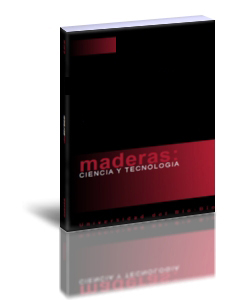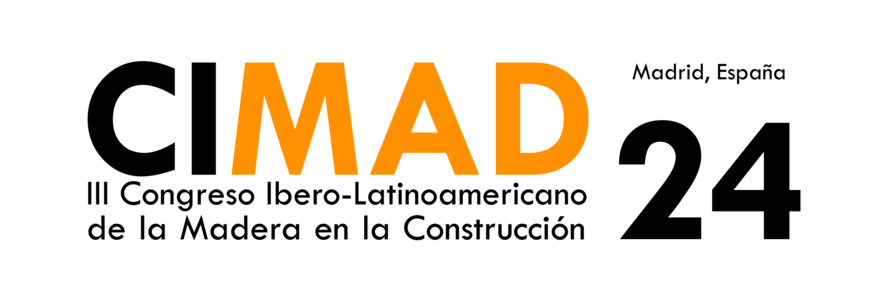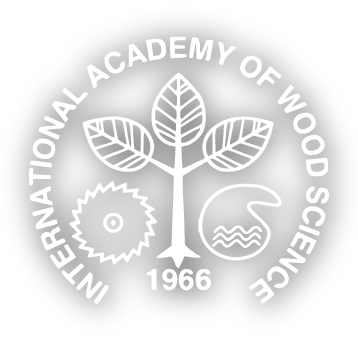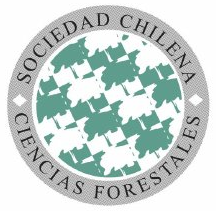Some physical and mechanical properties of particle boards produced with hazelnut husk and astragalus (Astragalus membranaceus) plant
DOI:
https://doi.org/10.22320/s0718221x/2025.02Keywords:
Astragalus plant, black pine wood chip, hazelnut husk, mechanical properties, particle board, physical properties.Abstract
In this study, under laboratory conditions, hazelnut husk and astragalus plant were mixed separately into black pine wood chips, and multi-purpose boards were produced from the obtained chips with urea formaldehyde glue. After the hazelnut husk and astragalus plant were dried and ground, they were added to the chip and glue mixture in certain proportions. Hazelnut husk mixture ratios were applied as 100 %; 0 %, 75 %; 25 %, 50 %; 50 %, 25 %; 75 %, 0 %; 100 % to black pine wood chip in the particle board mixture. These ratios were made in the same way for the astragalus plant. From these mixtures, chipboard blanks of 16 mm thickness and densities between 0,68 g/cm3 and 0,72 g/cm3 were produced. Density, moisture content, thickness increase, water intake, bending strength, modulus of elasticity in bending and tensile strength perpendicular to the surface were tested in physical and mechanical experiments. According to the results obtained, as the participation rate of hazelnut shells and astragalus increased, the durability properties of the panels decreased. At the same time, it shows that the technological properties of the panels produced by adding up to 25 % astragalus plant and hazelnut shells to the mixture comply with the standards.
Downloads
References
Akyurek, S. 2019. The effect of luminescent (Pinus nigra J.F. var. şeneriana) wood on cell wall components and solubility values was investigated. Master’s Thesis. Kutahya Dumlupınar University, Institute of Science and Technology, Kutahya. https://openaccess.dpu.edu.tr/xmlui/handle/20.500.12438/7941
Alma, H.A.; Kalaycıoglu, H.; Bektas, I.; Tutus, A. 2005. Properties of cotton carpelbased particle boards. Industrial Crops and Products 22(2): 41-149. https://doi.org/10.1016/j.indcrop.2004.08.001
Aras, U.; Kalaycıoglu, H.; Yel, H. 2014. Some of the Particleboards Produced from Pistachio Pine Cones Properties, 3rd International Symposium on Non-Wood Forest Products, 8-10 May 2014, Kahramanmaras. Turkish. https://www.researchgate.net/profile/Ugur-Aras/publication/279849922_Fistik_Cami_Pi-nus_Pinea_L_Kozalaklarindan_Uretilen_Yongalevhalarin_Bazi_Teknolojik_Ozellikleri/links/559bd2be08ae-898ed650a3d7/.pdf
Bal, B.C.; Ayata, U. 2020. A comparative study on some mechanical properties of black pine and black poplar woods. Turkish Journal of Forestry 21(4): 461-467. https://dergipark.org.tr/tr/download/article-fi-le/1293428
Bektas, I.; Ugur, C.; Tutus, A. 2021. Determination of some physical propertıes of partıcle board produced from sunflower stalks and wood mixture. Kahramanmaras Sutcu Imam University Journal of Engineering Sciences 24(1): 24-33. http://jes.ksu.edu.tr/tr/download/article-file/1311057
Bektas, I.; Tutus, A.; Ugur, C. 2020. Investigation of the conformity of some mechanical properties of particle boards produced from cotton stalks to standards. Turkish Journal of Forestry 21(4): 445-450. https://doi.org/10.18182/tjf.741237
Bektas, I.; Guler, C.; Kalaycıoglu, H.; Mengeloglu, F.; Nacar, M. 2005. The manufacture of particleboards using sunflower stalks (Helianthus annuus L.) and poplar wood (Populus alba L.). Journal of Composite Materials 39(5): 467-473. https://doi.org/10.1177/0021998305047098
Buyuksari, U.; Ayrilmis, N.; Avci, E.; Koc, E. 2010. Evaluation of the physical, mechanical properties and formaldehyde emission of particleboard manufactured from waste stone pine (Pinus pinea L.) cones. Bioresource Technology 101(1): 255-259. https://doi.org/10.1016/j.biortech.2009.08.038
Camlibel, O. 2023. Influence of the multiday and continuous hot press on the physical, mechanical and formaldehyde emission properties of the particleboard. Maderas. Ciencia y Tecnología 25(7): 1-14. http://dx.doi.org/10.4067/s0718-221x2023000100407
Cavuş, V.; Sahin, S.; Esteves, B.; Ayata, U. 2019. Determination of thermal conductivity properties in some wood species obtained from Turkey. BioResources 14(3): 6709-6715. http://dx.doi.org/10.15376/biores.14.3.6709-6715
Chow, P.; Janoviak, J.J.; Price, E.W. 1986. The internal bond and shear strength of hardwood veneered particleboard composites. Wood and Fiber Science 18(1): 99-106. https://www.srs.fs.usda.gov/pubs/ja/ ja_chow001.pdf
Filiz, M.; Usta, P.; Turgut Sahin, H. 2011. Evaluation of Some Technical Properties Obtained from The Participleboard with Melamine Urea Formaldehyde Glue, Red Pine and Tea Waste. SDU Journal of Natural and Applied Sciences 15(2): 88-93. https://dergipark.org.tr/en/pub/sdufenbed/issue/20795/222146
Giudice, V.L.; Antov, P.; Koynov, D.; Kristak, L.; Lee, S.H.; Lubis, M.A.R.; Mecca, M.; Moretti, N.; Tiwari, R.; Todaro, L. 2023. Effect of thermo-vacuum modification on selected chemical, physical, andmechanical properties of Siberian larch (Larix sibirica L.) wood. Wood Material Science & Engineering 18(6): 1991-2000. https://doi.org/10.1080/17480272.2023.2212253
Guler, C.; Ozen, R. 2004. Some properties of particleboards made from cotton stalks (Gossypium hirsitum L.). Holz als Roh-und Werkstoff 62(1): 40-43. https://doi.org/10.1007/s00107-003-0439-9
Guler, C.; Bektas, I.; Kalaycıoglu, H. 2006. The experimental particleboard manufacture from sunflower stalks (Helianthus annuus L.) and calabrian pine (Pinus brutia T.). Forest Products Journal 56(4): 56-60.
Guler, C.; Copur, Y.; Buyuksari, U. 2009. Producıng Particleboards From Hazelnut (Coryllus Avellana L.) Husk And European Black Pıne (Pınus Nıgra A.). Wood Research 54(1): 125-132. http://www.woodrese-arch.sk/wr/200901/12.pdf
Guler, C.; Buyuksari, U. 2011. Effect of production parameters on the physical and mechanical properties of particleboards made from peanut (Arachis hypogaea L.) hull. BioResources 6(4): 5027-5036. http://dx.doi.org/10.15376/biores.6.4.5027-5036
Guler, C. 2015a. Evaluation of Some Annual Plants in the Production of Wood Based Composite Materi- als.(Odun Esaslı Kompozit Malzeme Üretiminde Bazı Yıllık Bitkilerin Değerlendirilmesi) Selcuk University Journal of Engineering Sciences 14(2): 70-78. https://sujes.selcuk.edu.tr/sujes/article/view/219
Guler, C. 2015b. Production of particleboards from licorice Glycyrrhiza glabra and European black pine (Pinus Nigra A.) wood particles. Scientific Research and Essays 10(7): 273-278. https://doi.org/10.5897/SRE2015.6193
Kalaycıoglu, H. 1992. Evaluation of VegeTable Wastes in Particle Board Industry, ORENKO’92 National Forest Products Industry Congress, Proceedings, 22-25 September 1992, Volume I: 288-292, Trabzon, Türkiye. https://avesis.ktu.edu.tr/yayin/661c5cb6-7dcf-4795-ad04-51dfbd7451a6/bitkisel-atiklarin-yongalevha-en-dustrisinde-degerlendirilmesi-orenko-92-ulusal-orman-urunleri-endustrisi-kongresi
Kalaycıoglu, H.; Nemli, G. 2006. Producing composite particleboard from kenaf (Hibiscus cannabinus L.) stalks. Industrial Crops and Products 24(2): 177-180. https://doi.org/10.1016/j.indcrop.2006.03.011
Kardas, I. 2014. Examination of Kütahya-Simav region geothermal resources in terms of impregnation materials and investigation of the effects of these resources on some properties of wood. Master’s Thesis. Suleyman Demirel University, Institute of Science and Technology, Isparta. https://tez.yok.gov.tr/UlusalTezMer-kezi/tezDetay.jsp?id=CvH0T2DY2ZnqejPSAX_wxQ&no=5hvcqSlOEZfRHSunXnzKMw
Kristak, L.; Antov, P.; Bekhta, P.; Lubis, M.A.R.; Iswanto, A.H.; Reh, R.; Sedliacik, J.; Savov, V.; Taghiyari, H.R.; Papadopoulos, A.N.; Pizzi, A.; Hejna, A. 2023. Recent progress in ultra-low formaldehyde emitting adhesive systems andformaldehyde scavengers in wood-based panels: a review. Wood Material Science & Engineering 18(2): 763-782. https://doi.org/10.1080/17480272.2022.2056080
Khedari, J.; Choroenvai, S.; Hirunlabh, J. 2003. New insulating particleboard from durian peel and coconut coir. Building and Environment 38(3): 435-441. https://doi.org/10.1016/S0360-1323(02)00030-6
Khedari, J.; Nonkangrob, N.; Hirunlabh, J.; Teekasap, S. 2004. New lost-cost insulating particleboards from mixture of durian peel and coconut coir. Building and Environment 39: 59-65. https://doi.org/10.1016/j.buildenv.2003.08.001
Mańkowski, P.; Laskowska, A. 2021. Compressıve strength parallel to graın of earlywood and latewood of yellow pıne. Maderas. Ciencia y Tecnología (23): e57. https://doi.org/10.4067/s0718-221x2021000100457
Mobarak, F.; Nada, A.M. 1975. Hardboard from undebarked cotton stalks. Journal of Applied Chemistry and Biotechnology 25(9): 659-662. https://doi.org/10.1002/jctb.5020250904
Morrell, J.J. 2019. Protectıon of wood: a global perspectıve on the future. Sigma Journal of Engineering and Natural Sciences 10(1): 81-94. https://sigma.yildiz.edu.tr/storage/upload/pdfs/1635923105-en.pdf
Nemli, G.; Kirci, H.; Serdar, B.; Ay, N. 2003. Suitability of kiwi (Actinidia sinensis P.) prunings for particleboard manufacturing. Industrial Crops and Products 17(1): 39-46. https://doi.org/10.1016/S0926-6690(02)00057-2
Nemli, G.; Aydin, A. 2007. Evaluation of the physical and mechanical properties of particleboard made from the needle litter of pinus pinaster ait. Industrial Crops and Products 26(3): 252-258. https://doi.or-g/10.1016/j.indcrop.2007.03.016
Nemli, G.; Demirel, S.; Gumuskaya, E.; Aslan, M.; Acar, C. 2009. Feasibility of incorporating waste grass clippings (Lolium perene l.) in particleboard composites. Waste Management 29(3): 1129-1131. https://doi.org/10.1016/j.wasman.2008.07.011
Oh, Y.S.; Yoo, J.Y. 2011. Properties of particleboard made from chili pepper stalks. Journal of Tropical Forest Science 23(4): 473-477. https://www.jstor.org/sTable/23617062#metadata_info_tab_contents
Sanıvar, N.; Zorlu, I. 1980. Woodworking equipment knowledge basic course book, Vocational and Technical Education Books. National Education Printing House: Istanbul, Survey and Programming Department Publications No: 43. https://www.nadirkitap.com/agacisleri-gerec-bilgisi-orta-dereceli-endustriyel-teknik--ogretim-okullari-temel-ders-kitabi-nazim-sanivar-irfan-zorlu-kitap26545271.html
Sevincli, Y. 2014. Investigation of the mechanical and physical properties of the particleboard produced from lavender plant waste, Master Thesis. Institute of Science, SDU, Isparta, Türkiye. https://tez.yok.gov.tr/UlusalTezMerkezi/tezSorguSonucYeni.jsp
TSE. 1999. Particleboards-specifications-part 2: Requirements for general-purpose boards for use in dry conditions. TS EN 312-2. 1999. TSE: Ankara, Türkiye.
TSE. 1999. Wood based panels, determination of modulus of elasticity in bending and bending strength.
TS EN 310. 1999. TSE: Ankara, Türkiye.
TSE. 1999. Particleboards and fiberboards, determination of swelling in thickness after immersion. TS EN
1999. TSE: Ankara, Türkiye.
TSE. 1999. Particleboards and fiberboards, determination of tensile strength perpendicular to plane of the board. TS EN 319. 1999. TSE: Ankara, Türkiye.
TSE. 1999. Determination of moisture content of wood-based panels. TS EN 322. 1999. TSE: Ankara, Türkiye.
TSE. 1999. Wood based boards Unit volume weight determination. TS EN 323. 1999. TSE: Ankara, Türkiye.
TSE. 1999. Wood- Based panels- Sampling, cutting and inspection- Part 1: Sampling test pieces and expression of test results. TS EN 326-1. 1999. TSE: Ankara, Türkiye.
TSE. 1997. Conditioning and/or standard atmospheres for trial and Standard reference atmosphere. TS 642-ISO 554. 1997. TSE: Ankara, Türkiye.
Var, A.A.; Kardas, I. 2017. Modulus of Rupture, Compression Strength Parallel to Grain And Static Quality Value Of Pine Wood Treated With Geothermal Waters From Simav Region Of Turkey. Journal of Bartin Faculty of Forestry 19(1): 93- 101. https://www.cabidigitallibrary.org/doi/full/10.5555/20173323388
Xu, J.; Han, G.; Wong, E.D.; Kawai, S. 2003. Development of binderless particleboard from kenaf core using steam injection pressing. Journal of Wood Science 49(4): 327-332. https://doi.org/10.1007/s10086-002-0485-7
Yang, H.S.; Kim, D.J.; Kim, H.J. 2003. Rice straw-wood at the lot composite for sound absorbing wooden the construction materials. Bioresource Technology 86(2): 117-121. https://doi.org/10.1016/s0960-8524(02)00163-3
Downloads
Published
How to Cite
Issue
Section
License

This work is licensed under a Creative Commons Attribution 4.0 International License.
Los autores/as conservarán sus derechos de autor y garantizarán a la revista el derecho de primera publicación de su obra, el cuál estará simultáneamente sujeto a la Licencia de Reconocimiento de Creative Commons CC-BY que permite a terceros compartir la obra siempre que se indique su autor y su primera publicación esta revista.




































